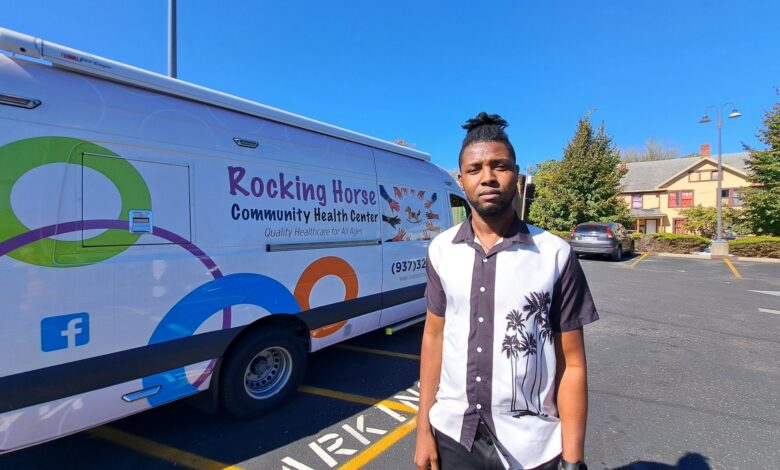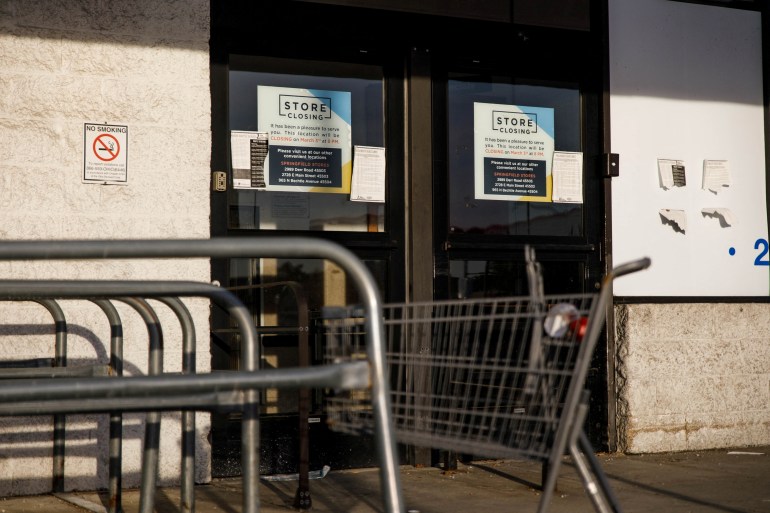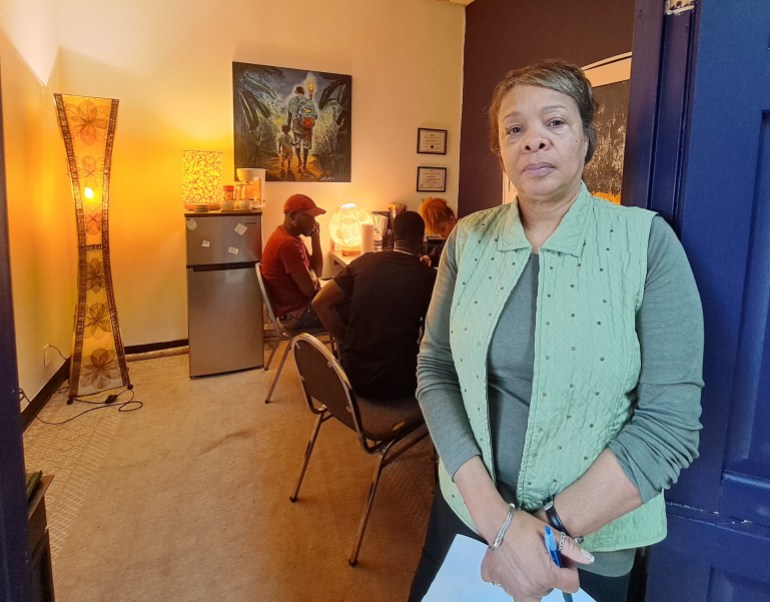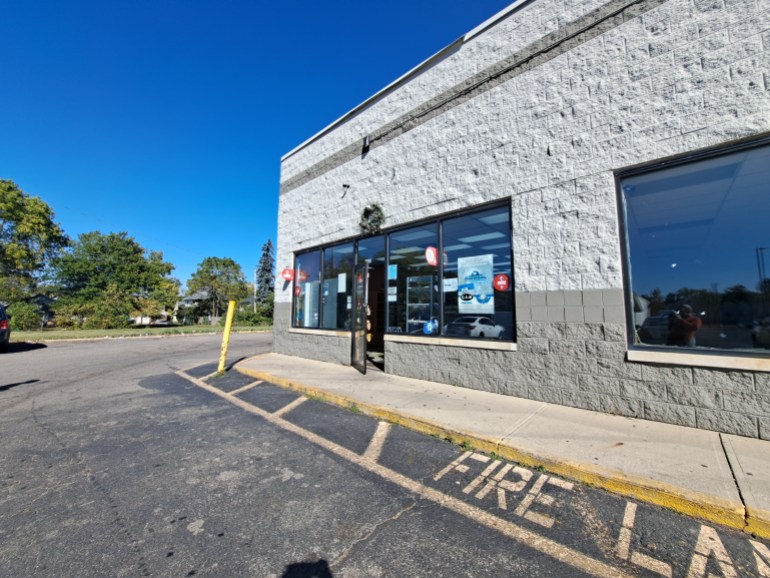How a child’s death caused an Ohio city to turn on its Haitian community

Springfield, Ohio – Sony Auguste remembers May 18 well. It was a warm, sunny day in Springfield, Ohio, and a crowd had gathered at the Veterans Park Amphitheater, where a line of canopy tents was decorated with red and blue balloons for Haitian Flag Day.
Live performers had been flown in from out of state to blast Caribbean tunes. The city’s burgeoning Haitian food scene — a mix of newly opened food trucks and unadorned cafes — served mountains of plantains, stew and rice.
On the other side of Buck Creek, at Springfield’s City Hall, the Haitian flag was raised and the country’s national anthem played.
For Auguste, a 35-year-old healthcare worker originally from the Haitian capital of Port-au-Prince, it was a moment of pride. He had moved to Springfield in June 2020.
“I could feel the connection with the other Haitians,” Auguste said. “I felt [at] home that day. To know that we have that, that was a big surprise.”
But in the months since, a pall has fallen over the city’s Haitian community. A child’s death has ignited tensions between new arrivals and longtime Springfield residents, leaving some Haitians wondering if they are welcome in the city at all.
A city in decline
Situated in an industrial stretch of the midwestern United States known as the Rust Belt, Springfield was once a leading manufacturing hub, home to major printing and machinery companies.
But when the factories started to shutter, the city shrank. One third of Springfield’s population has moved away since the 1980s.
So when hundreds — then thousands — of Haitians started moving the Springfield, the city of 60,000 people got the population boost it was crying out for.
An estimated 4,000 to 7,000 Haitians have arrived in recent years, according to officials on the Springfield City Commission. Overall, the number of Haitian-born residents in the US has reached 730,780, according to the 2022 census.
Many escaped poverty and violence. Haiti is the poorest country in the Western Hemisphere, and the proliferation of gangs, particularly in the Port-au-Prince area, have forced thousands of people to flee. Some have used immigration pathways like the Temporary Protected Status (TPS) programme to travel to the US.
At first, Springfield welcomed the new arrivals. In 2014, the city launched a Welcome Springfield campaign designed to attract foreign-born residents and boost the local economy.
Haitians started to fill labour shortages at local farms and businesses like Dole Fresh Vegetables, one of the largest produce companies in the world. Caribbean cafes opened in shopping plazas where supermarkets had closed. And Haitian families started to pack events like the annual Clark County Fair, filling the air with the sounds of Haitian Creole.
But the demographic changes in Springfield prompted a backlash — one that reached a crescendo in late August.

A child’s death
It was 8:15am on a Tuesday morning when Hermanio Joseph, a 35-year-old Haitian national, drove a 2010 Honda Odyssey minivan into oncoming traffic.
A school bus was headed in the opposite direction, with dozens of children on board heading to their first day of class for the school year. One would never arrive.
Eleven-year-old Aiden Clark was thrown from the bus as it veered off the roadway and flipped. He died at the scene. Twenty-three other children were injured, including one seriously. Joseph was ultimately charged with two felonies: involuntary manslaughter and vehicular homicide.
Springfield erupted with grief at the news of the accident. Some residents channelled their outrage towards the Haitian community as a whole.
The anger came close to spilling over at a City Commission meeting on August 29, where Mayor Warren Copeland struggled to keep order. “Just be quiet, OK?” he snapped during one outburst.
For nearly two hours, residents came to the podium to speak. Some warned of an invasion of Haitians and the crime they allegedly would bring. Another person raged that the Haitian flag had been raised at City Hall as part of the Flag Day celebrations. Police officers stationed around the room shifted uneasily from foot to foot.
“I want to know: Who’s bussing them in? Who’s responsible for that, and who can stop them from coming?” one resident asked, echoing rumours that Haitian migrants had been arriving en masse on buses.
One woman who stood up to speak suggested that Springfield had become a “sanctuary city”, a term used to describe municipalities that do not cooperate with federal immigration enforcement. City officials reassured her it had not.
“There are people who are here that are not native Springfielders,” she continued, as another audience member shouted, “Illegals!” She replied, “Exactly.”
Some pleaded with the community to be tolerant. Rob Rue — a city commissioner who was recently elected to succeed Copeland as mayor — reminded the crowd, “Reckless driving is not just in the immigrant community.”
“There’s a lot of new people in our community,” Rue told the rumbling audience. “I get that. It’s a concern. Because there is cultures clashing.”
Even the parents of the 11-year-old child killed in the crash called for an end to the anger in a public statement in October.
“We do not want our son’s name to be associated with the hate that’s being spewed at these meetings,” Danielle and Nathan Clark wrote. “Aiden embraced different cultures and would insist you do the same.”

Still, Springfield’s Haitian community remains on edge, as neighbours continue to vent their opposition to immigration in the area.
The school bus crash was one of several roadway incidents involving Haitian arrivals in recent months. Days after the school bus overturned, another Haitian man crashed a car he was using to learn to drive into a Springfield church, making headlines around the region.
That incident likewise prompted an outcry. And local businesses have reported strain as they adjust to the influx of arrivals.
Springfield’s school district, for instance, has had to accommodate double the number of students needing English language assistance by hiring more bilingual assistants.
“Four years ago, we didn’t have a Haitian population,” Pamela Shay, the school district’s director of federal programmes, told the local publication The Hub last year.
The Rocking Horse Community Health Center, meanwhile, has seen the number of paediatric patients needing French or Haitian Creole services jump from 38 in 2020 to 416 last year.
It had to spend $344,000 in translation services from January to August alone — compared to a total of $4,000 in 2018.
Dr Yamini Teegala, the centre’s chief medical officer, explained that Rocking Horse’s doctors carry multiple phones in their pockets that are connected to Spanish and Haitian Creole translators at all times.
“Translation costs are unimaginable,” she told Al Jazeera. “We are struggling.”
The mounting pressure in the community has resulted in reports of attacks against Haitian residents. A single day at the start of the year saw two acts of violence in a row.
One Haitian man was beaten and robbed of his ATM card, his cell phone and $300 he intended to send to his mother. Within hours, another Haitian person was attacked outside Friendly’s Bakery, a Haitian market and community meeting spot. He was pulled from his vehicle and punched, and the assailant ultimately stole his car.
This week, a local man was sentenced to 20 years in prison on federal hate crimes charges in relation to those two incidents, plus attacks against six other Haitians.
At a City Commission meeting, Rue — the mayor-elect — also claimed he had “uncovered landlords who are exploiting” Haitian arrivals, charging rates of “$100 to $500 per bed” in shared rooms.
Aram “Junior” Antoine came to Springfield in 2020 and today works at an auto parts company. In the weeks following the school bus crash, he said he felt safe to go out in public only because he had a car to drive in.
Both before and after the crash, he heard of Haitian friends and community organisations being targeted. “Our church was damaged and broken into twice in one month, and that was after the [bus] accident,” he said, referring to the First Evangelical Haitian Church of Springfield.
“Others had their cars broken into. I think the people who are at most risk are those who don’t have cars, who have to walk from the store carrying bags of groceries.”

Searching for solutions
To address concerns over the growing Haitian migration to Springfield, the City Commission recently launched an Immigration Accountability Response Team. It also established a rental property registry in an attempt to curb price-gouging in housing.
But advocates believe more needs to be done to lessen the tensions and help Haitian arrivals find acceptance and support.
“As a community, are we going to help [Haitians] thrive rather than thinking that this is going to go away?” Teegala, the chief medical officer at Rocking Horse, asked. “They are trying [to do] their part. We need to try ours.”
In a back office inside Friendly’s Market, Margery Koveleski and her daughter work as volunteers in the Haitian community. They welcome dozens of Haitian people a day who don’t speak English, offering them translation services and help with their paperwork.
Koveleski, who speaks Creole and has family roots in Haiti, expressed little surprise that the recent car crashes involved Haitian drivers who reportedly had no valid licence.
“Most of these people have no idea of the requirements needed for getting a driver’s licence,” she said.
Even once the new arrivals understand the requirements to apply for a license, language and paperwork can be a barrier.
A spokesperson for Ohio’s Department of Public Safety confirmed that the computerised segment of the driving test is not offered in Haitian Creole, though test-takers can bring someone to help with translation.

Another hurdle is connecting new immigrants with safe, steady work, according to Katie Kersh, an immigration lawyer who has represented Haitian clients in Springfield for four years.
“Work permits are taking months and months [to process], sometimes over a year. People are not able to work while they are here, so what do they do?” Kersh asked.
In asylum cases, for instance, it usually takes 180 days for applicants to become eligible for a work permit, Kersh explained. But when an asylum-seeker moves to a different state or changes the jurisdiction of their asylum application, that stops the process until their next hearing takes place.
“That makes it impossible to be eligible for work authorisation,” Kersh said. “Most [asylum-seekers] don’t know that.”
Through her work, Kersh has also observed that many Haitians rely on staffing companies to find employment.
“Temporary agencies are not an ideal long-term form of employment for any workers,” she said. “This is because temporary agencies almost never provide benefits, including health benefits and paid time off for their workers.”
That leads to “unjust” conditions for the Haitians in Springfield who rely on those agencies, she added.
“Haitians, like other workers, have children, need healthcare, and should be able to invest in retirement and receive other benefits,” Kersh said.

Boosting the economy
But it remains to be seen whether there is the political will on the state and national level to help Haitian immigrants better integrate into the community.
Until recently, Ohio was seen as a bellwether for the entire US, offering a microcosm for wider political trends. But that has changed as the state has shifted towards the political right.
In the 2020 presidential race, Republican Donald Trump scored a decisive victory in Ohio, though he ultimately lost the overall election. Two years later, the Trump-endorsed candidate JD Vance trounced his Democratic rival for a seat in the US Senate, representing Ohio.
Both Trump and Vance have advanced hardline immigration policies designed to dramatically curb the number of new arrivals to the country.
Still, Ohio has seen a revenue boost from its surge in immigration. In the northeastern part of the state, immigrants contributed $1.5bn in taxes and $3.9bn in spending power in 2019 alone, according to the American Immigration Council, a nonprofit advocacy organisation.
Ohio’s foreign-born population nevertheless remains relatively small. While 14 percent of the US population was born abroad, that figure drops to less than 5 percent in Ohio.
Within Springfield itself, foreign-born residents comprise just 2.5 percent of the population, though that statistic may not account for the recent growth in the Haitian community.
Auguste, the Haitian man who moved to Springfield in 2020, believes the area’s low cost of living and job market will continue to be a draw for new arrivals.
He himself was attracted to Springfield after living in the neighbouring state of Pennsylvania. A former cruise ship worker who speaks three languages, Auguste said he was convinced to move because of a friend’s effusive praise for the city.
He soon found a job at a warehouse. Last year, he switched employers, joining Rocking Horse Community Health Center as a patient advocate.
“I felt like this is a quiet place. There are better pay rates [than elsewhere] and no issues with traffic or parking,” Auguste said. “I thought, ‘I can do this. My place is here.’”
Every Friday, he mans a bus that travels through Springfield to bring healthcare services to residents, including in the Haitian community. Other companies have offered him higher paying jobs, he said, but he has no plans to leave Springfield. He recently bought his first house here.
“I feel useful here,” he said. “Being a part of helping my people, that’s what important to me.”



